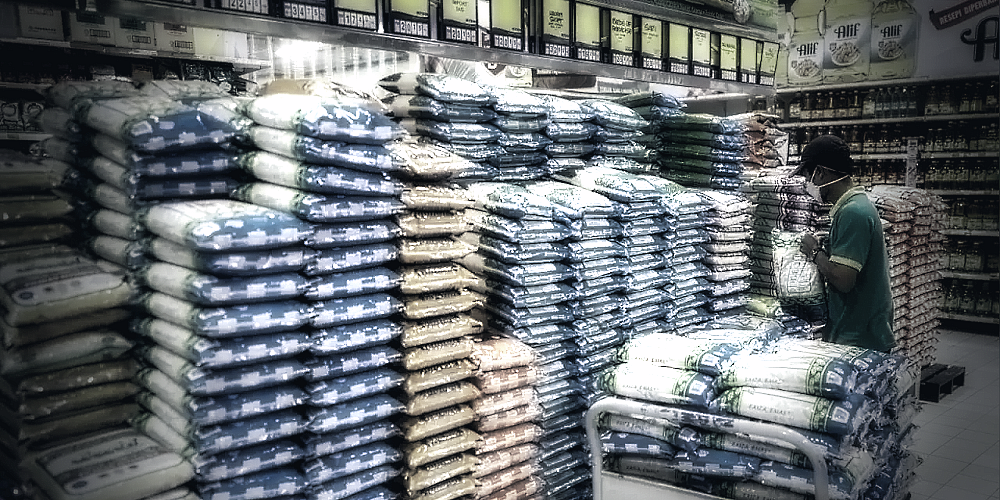
Statistics show that Malaysia’s inflationary pressure has eased remarkably, from 3.7% this January to only 2% in July and August.
From the numbers, indeed the inflation has been somewhat put under control; price hikes seem to have been tamed, but not many people in the street can actually have that “feel good” mood stemming from the impressive numbers. Many still feel the tremendous weight upon their shoulders, with their living quality significantly affected by the skyrocketing goods prices.
This, unfortunately, has been the crudest feeling Malaysians generally have, a reality that no numbers can ever supplant. Senior government officials should not insist that goods prices have come under control, citing the icy cold numbers, as this will only show how dislodged they are from the real-life agonies of average Malaysians.
By comparison, PM Anwar Ibrahim appears to be more down-to-earth, confessing that runaway goods prices are indeed a cruel reality the nation is grappling with, which have since sparked social uneasiness. He promised that the government would do its utmost to help the rakyat tackle the issue of rising prices of day-to-day necessities.
Admitting the presence of a problem marks the first step in resolving the problem. It is a good start that the PM is seriously looking into the issue of soaring goods prices, but what next?
Currently the government is adopting a mainly three-pronged approach in its inflation-busting strategy–setting ceiling prices, providing subsidies, and organizing low-price promotional events.
Setting ceiling prices for essential items has been a customary practice of the Malaysian government. This is a hard-handed tactic to suppress goods prices. Although in a free market, prices of goods are determined wholly by the supply-demand principle, by setting ceiling prices for some essential items, their prices will not go beyond the upper limit set by the government even if the demand is strong and supply is tight.
On the surface, this approach seems to work quite well in suppressing rapid changes in goods prices, it may nevertheless backfire, as it will squeeze the market supply.
The government cannot forever resort to the same old tactics of fighting inflation, but must have long-term plans to strengthen the financial position of the country as well as individual Malaysians.
As for subsidization, Malaysians couldn’t have been more familiar with such mechanism. The government has been providing subsidies for many items to ensure that consumers get to enjoy these products at more affordable prices.
While the intention is good, it nevertheless creates some fresh problems. Firstly, subsidization distorts the market causing inequilibrium in the supply-demand equation and waste of public resources. Secondly, excessive government financial burden from over-subsidization makes the mechanism non-sustainable in the long run. Thirdly, subsidized goods could be smuggled across the borders to neighboring countries.
The government forked out RM77.3 billion last year for all forms of subsidies, a hefty burden for the Treasury. Because of that, the government has in recent years stressed the need for subsidy rationalization toward a more targeted mechanism.
In the meantime, owing to rapidly rising goods prices, the government has been holding promotional events at multiple locations across the country to sell affordably priced goods to the people, including a Jualan Rahmah Beras event to benefit the people, especially those from the lower income brackets.
While such events are hugely popular among the consumers, the question is, supply has always been limited and therefore not everyone gets to benefit from the promotions. Moreover, this is only an expedient plan and will never be a viable long-term solution.
Simply put, the problem of spiraling inflation is a hard nut to crack, especially when external factors beyond the government’s control are involved. Besides providing short-term assistances, more importantly the government must institute long-term economic reforms to catalyze industrial transformation in order to shore up the government’s fiscal position and lift the overall incomes of Malaysians.
Our country has been sadly stuck in the “middle-income trap” for quite many years, with people earning not enough to weather an unexpected recession or uncontrolled inflation.
In short, subsidization and setting ceiling prices may produce some visible effects in the near term, but will also bring undesirable effects in the long run. The government cannot forever resort to the same old tactics of fighting inflation, but must have long-term plans to strengthen the financial position of the country as well as individual Malaysians.
ADVERTISEMENT
ADVERTISEMENT








































